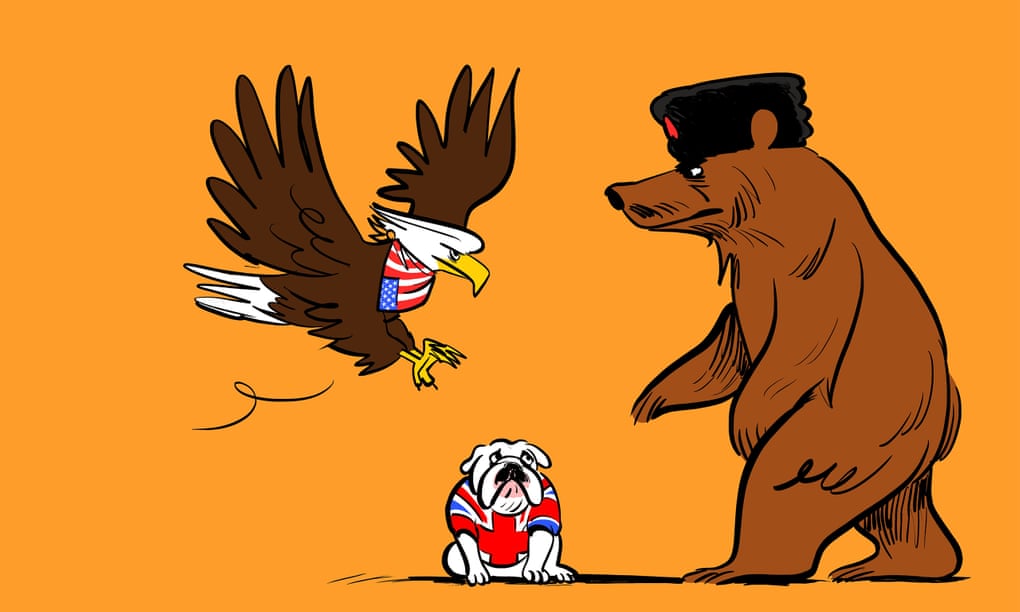
The decision by Washington and Moscow to withdraw from a nuclear weapons treaty has just made the world a more unstable place
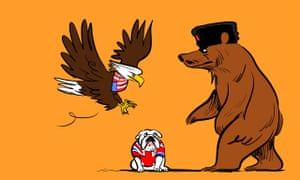
For a bit of perspective on turbulent times it helps to remember Able Archer. In November 1983, Nato simulated a confrontation with the Soviet Union. The rehearsal was so plausible that the Russians doubted it was a drill, and began a counter-mobilisation. Luckily, level heads prevailed. Able Archer was the name of the operation that nearly turned the cold war hot by accident.
Europe might feel a bit unstable these days, but at least it is not a hair-trigger away from nuclear Armageddon. One reason is the Intermediate-range Nuclear Forces (INF) treaty. That deal, signed by Washington and Moscow in 1987, banned missiles with a range of 310 to 3,420 miles. Last week, Donald Trump withdrew the United States from the INF, blaming Russian violations.Vladimir Putin reciprocated over the weekend, promising to accelerate development of prohibited weapons. Unless Moscow and Washington unexpectedly rediscover the spirit of detente, the INF treaty is finished. A global monument to the triumph of diplomatic rationality over militaristic paranoia is being pulled down.
The response in Britain has been oddly muted. Politics is mostly taken up by Brexit, but the issues are linked. An earthquake under the foundations of European defence should jolt needles even on parochial Westminster seismographs. There was a debate in the Commons on Monday, but it was not a premier league parliamentary fixture. Attendance was sparse. Neither Labour nor the Tories fielded a cabinet-level minister. No one seriously disputed that Russia has violated the INF and no one pretended the UK could influence Trump’s response.
That exposes a double discomfort. First, there is no strategy to stop Putin sabotaging the institutional basis for Britain’s national security. Second, Trump is happy for that apparatus to crumble. It is hard enough to manage the behaviour of a nuclear-armed, rogue Kremlin without having also to accommodate roguish caprice in the White House.
Trump framed the INF treaty withdrawal as a response to Russian misdemeanour, but the true relationship with Moscow is more complex. The US security establishment, while horrified at evidence of meddling in the 2016 presidential election, doesn’t see Russia as an equal. It views Putin as a vindictive troll, lashing out through frustration at his country’s decline. Trump himself shows the kind of twisting incoherence towards the Kremlin that you might expect to see in a client who doesn’t like to admit the service he has procured.
The US president shares with his Russian counterpart contempt for the idea that big countries can be bound by law to yield to small ones. That is why Trump despises the EU. It is also the instinct that makes him wary of Nato. He routinely berates Europeans for failing to meet their financial obligations to the alliance and has hinted that he may one day abandon it. He sees any treaty that pre-dates his accession to the Oval Office as a scam that allows foreigners to drain American greatness.
Trump is unmoved by the cultural and historical component of Atlanticism – the idea of cousinship and shared values – between the American republic and the old continent from which its founders set sail. He cares about power only in the here and now. On that scale, Europe is a nuisance in trade and a military weakling. It is also far less important than China, whose ascendancy, most analysts agree, is the real reason the US itched to ditch the INF treaty. What was the point in arms controls that bound Washington but not Beijing? In that sense Trump has added petulant swagger to an older trend in US foreign policy. Barack Obama had a Pacific-facing view of America’s place in the world. Resentment of Europeans as military freeloaders has been growing in Washington since the end of the cold war.The fall of the iron curtain generated an economic “peace dividend” for the newly unified continent. To Pentagon eyes, that was all splurged on civilian goodies but with the expectation that US marines could still be hailed in an emergency.
Germany’s reluctance to become a heavyweight military power – a legacy of atonement for past atrocity – leaves the UK and France as Europe’s chief defenders (and holders of its nuclear capability). That division of labour had a certain equilibrium with all three countries in the EU. Berlin-Paris was the main political axis of the European project, while Paris-London was the continent’s security axis.
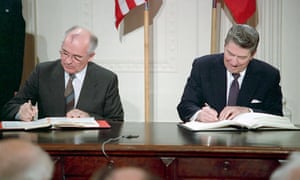
Brexit throws the whole thing off kilter. Theresa May saw immediately that British defence and intelligence capabilities were her strongest negotiating cards, but she played them cackhandedly. In her formal article 50 notification, she wrote that “failure to reach agreement would mean our cooperation in the fight against crime and terrorism would be weakened”. That was interpreted in Brussels as a threat, confirming fears that Brexit contained seeds of Trumpian malevolence towards the European project. To win back some goodwill, May last year offered “unconditional” securitycooperation. Meanwhile, Emmanuel Macron and Angela Merkel have ramped up talk of EU military cooperation. UK officials say that is a bluff, or rather, a rhetorical gesture of defence solidarity that is still, in material terms, meaningless without Nato. The one thing that loose talk of a European army does achieve is a reinforcement of British Eurosceptic fear about secret Brussels plots to dissolve nations into one vast superstate.
London continues to side with Europe over the US on some big policy calls – the Iran nuclear deal and tariff wars, for instance. British diplomats were reassured last year by the scale of EU support in naming and sanctioning Russia as culprit in the Salisbury poisoning. So far the logic of collective enterprise has proved more compelling than the Brexiteer cult of separation or any Brussels backlash against it. But for how long?
Diplomats on both sides of the Channel are battling to maintain the existing European security network while Brexit swirls around them – a nationalist squall that whips imagined problems into real ones. For every pledge the prime minister makes of continuing European partnership there are dozens of hysterical Tory MPs casting our closest natural allies as mortal enemies. They speak of Germany as if Dunkirk were evacuated this morning, and of France as if it were the eve of Agincourt. They select misshapen cudgels from the past and use them to assault the present. This is not healthy. Just when Britain needs a clear-sighted appraisal of its strategic direction, Brexit has fogged the horizon. We cannot ignore the common interests and history that bind us to Europe. We can also do a lot of harm trying.
The Guardian

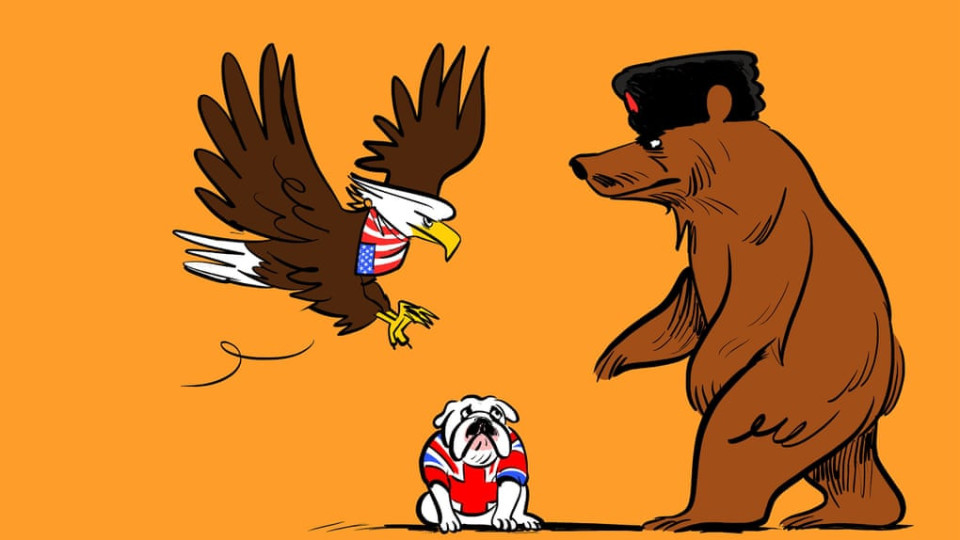
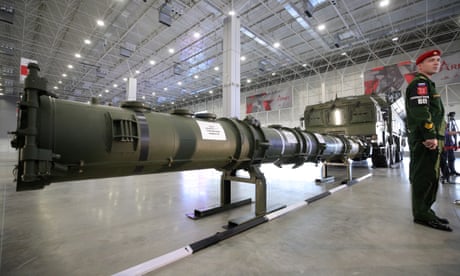


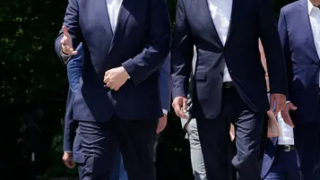






Leave a comment